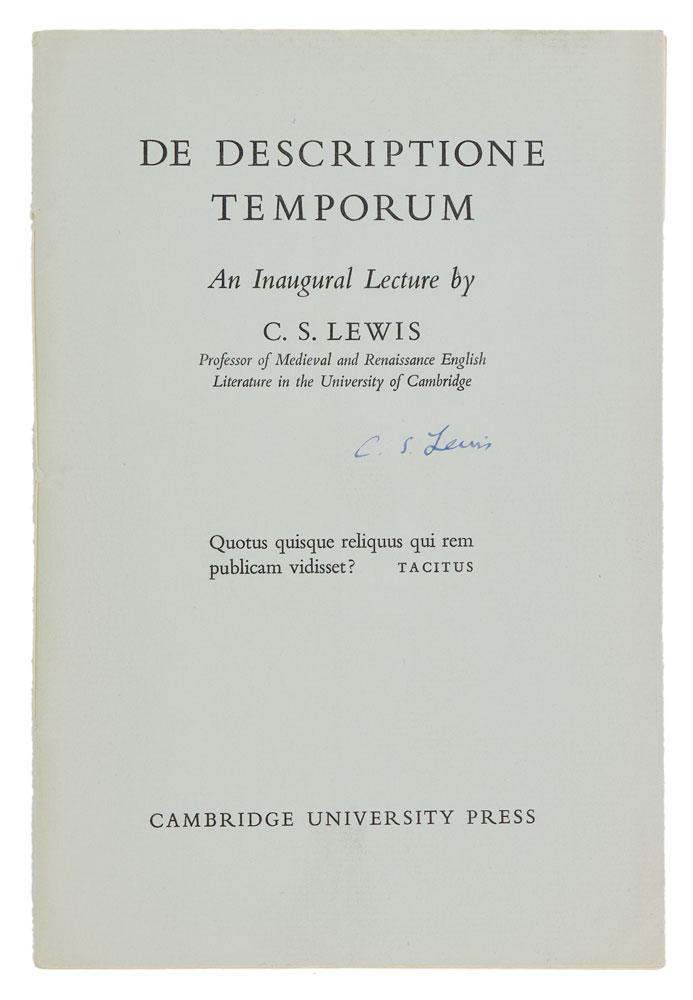I’m currently working on a video series for my church (which will eventually go worldwide via YouTube) on world religions. As I survey the various belief systems—and end with the Christian faith, of course—I hope the audience will excuse me for quoting C. S. Lewis continually throughout the series. He just has so many relevant comments that I find it hard to omit some of them.
For instance, the first religious system I examine is paganism. Lewis’s views on that might startle some Christians. In “Is Theism Important,” one of his essays in the God in the Dock collection, he gives us some fascinating food for thought.
“When grave persons express their fear that England is relapsing into Paganism, I am tempted to reply, ‘Would that she were.'”
Why would a solid Christian apologist make such a statement? Is he advocating pagan beliefs? True to Lewis’s humorous manner of writing, before offering his rationale, he invites us to smile with him over a scenario.
“For I do not think it at all likely that we shall ever see Parliament opened by the slaughtering of a garlanded white bull in the House of Lords or Cabinet ministers leaving sandwiches in Hyde Park as an offering for the Dryads.”
In other words, the fears of a rising paganism are a trifle ludicrous. Then he continues with his reasoning for why he made his controversial statement about possibly preferring a relapse into paganism.
If such a state of affairs came about [the scenario raised above], then the Christian apologist would have something to work on. For a Pagan, as history shows, is a man eminently convertible to Christianity. He is essentially the pre-Christian, or sub-Christian, religious man. The post-Christian man of our day differs from him as much as a divorcee differs from a virgin.
Lewis’s indictment of post-Christian man is a major theme throughout his writings. At least the pagan had some beliefs and might be convinced to change them; the post-Christian man is devoid of religious beliefs and is not open to discussing the possibility of their reality.
Perhaps it is in his remarkable inaugural address when he accepted an endowed chair at Cambridge University where he makes the case most directly. In this presentation, he looks back at the Christening of Europe, then remarks on how that process is now working in reverse.
“Of course the un-christening of Europe in our time is not quite complete; neither was her christening in the Dark Ages. But roughly speaking we may say that whereas all history was for our ancestors divided into two periods, the pre-Christian and the Christian, and two only, for us it falls into three—the pre-Christian, the Christian, and what may reasonably be called the post-Christian. This surely must make a momentous difference.”
The momentous difference, he says, is a cultural change, and that this latest change to post-Christian “is even more radical” than when pre-Christian morphed into Christian.
Christians and Pagans had much more in common with each other than either has with a post-Christian. The gap between those who worship different gods is not so wide as that between those who worship and those who do not.
He might have practiced expressing these thoughts in the previous year when he wrote a letter to his friend Don Giovanni Calabria, noting his agreement with his friend’s perspective on the present state of mankind, although he adds, “it is even worse than you say.” Why?
For they neglect not only the law of Christ but even the Law of Nature as known by the Pagans. For now they do not blush at adultery, treachery, perjury, theft and the other crimes which I will not say Christian Doctors, but the pagans and the barbarous have themselves denounced.
They err who say “the world is turning pagan again.” Would that it were! The truth is that we are falling into a much worse state.
Nothing is inevitable, yet as I survey modern culture, I conclude that it is much worse than it was in Lewis’s day. He is correct about the nature of modernity: it is divorced from the things that would have made us blush previously. Our culture now applauds immorality openly rather than behind closed doors. Christian faith is viewed by many as narrow, bigoted, and reactionary. Sadly, too many Christians have given ammunition for that stereotype.
It is true, though, that the Christian way is narrow, and few are those who find it. It is also true that there is much to react against. Yet we must do so in a spirit of love and redemption. After all, I’m supremely joyful that Christ didn’t merely “react” to how He was treated. Instead, He followed through with the greatest act of love in history. May we emulate Him.


